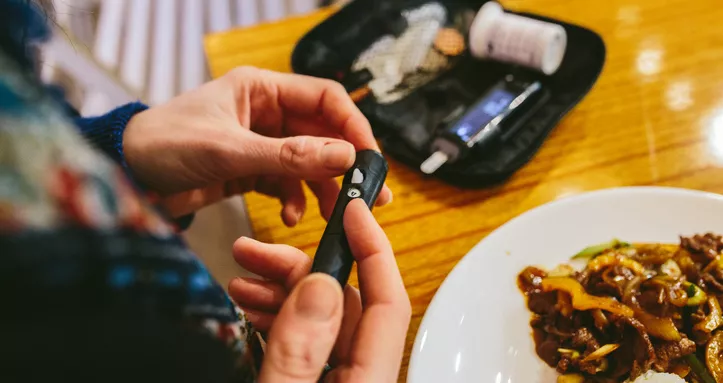
A blood pressure treatment called verapamil can protect insulin-making beta cells, slowing down type 1 diabetes progression in young people, according to the results of a new clinical trial funded by JDRF.
The exciting findings point to alternative treatments to immunotherapies, which could help more people with type 1 diabetes to have a ‘softer landing’ after their diagnosis.
Type 1 diabetes develops when the immune system wrongly attacks and destroys the insulin-producing beta cells in the pancreas. To stop or slow this attack, scientists have been researching ways to reprogramme the immune system through pioneering new treatments called immunotherapies.
The world’s first immunotherapy for type 1 diabetes, called teplizumab, was approved in the US in 2022. But there aren’t any immunotherapy treatments currently available in the UK and lots more research is needed before we see them becoming a routine part of type 1 diabetes care. So researchers have also been exploring other routes to protect beta cells.
Verapamil is a drug available on the NHS that’s used to treat high blood pressure by improving blood flow to the heart. It’s previously been shown to shield beta cells in a small number of adults newly diagnosed with type 1 diabetes, by turning off signals from a gene that tells beta cells to destroy themselves when blood sugar levels are too high.
Another way to protect beta cells
Funded by JDRF, a team of scientists in the US ran a follow-up study, to find out how verapamil can affect type 1 in younger people.
They set up a clinical trial with children and young people aged 7-17, who’d just been diagnosed with type 1 diabetes within the past month.
Of the 88 participants, 47 were treated daily with verapamil tablets for a year, and 41 received a daily harmless dummy tablet called a placebo. The dose of verapamil was calculated based on weight, so smaller children had a smaller dose. All the participants had their blood sugar measured by continuous glucose monitors (CGM) and continued insulin treatment.
To find out how well beta cells were protected over the year-long study, the researchers looked at C-peptide levels, which is a measure of how much insulin a person is still producing by themselves. The team found that the group treated with verapamil had C-peptide levels 30% higher than the group that had the placebo.
The verapamil group also had lower average blood sugar levels and spent more time with their blood sugar levels within a target range. They also needed less insulin than the placebo group.
The results suggests that verapamil can play a role in keeping blood sugar levels more stable, by strengthening beta cells and slowing down their destruction, so the pancreas can carry on producing insulin for longer. The participants also didn’t report any serious side effects.
What's next?
These findings could be an important step towards finding alternatives to immunotherapies.
Verapamil is already used to treat other health conditions, plus it’s cheap, and it’s easy to use. This means, with continued positive research, we could see quicker progress and people newly diagnosed with type 1 having access to treatments that can slow down the progression of the condition, sooner.
This would give them a ‘softer landing’ after their diagnosis, giving people extra time with steadier blood sugar levels and potentially protecting against diabetes complications years down the line.
But more research is needed to find out if verapamil is safe and effective for longer-term use, and to understand how long its protective effects might last for.
Take part in verapamil research
To help address this here in the UK, the Type 1 Diabetes Immunotherapy Consortium, which we fund together with JDRF, is currently recruiting adults aged 18-44 who’ve been diagnosed with type 1 diabetes in the last six weeks.
They’re being invited to take part in the Ver-A-T1D study, to investigate the effects of verapamil. Head to the website to find out more and sign up.
In the meantime, discover more about the research we’re funding to slow and prevent type 1 diabetes here.
